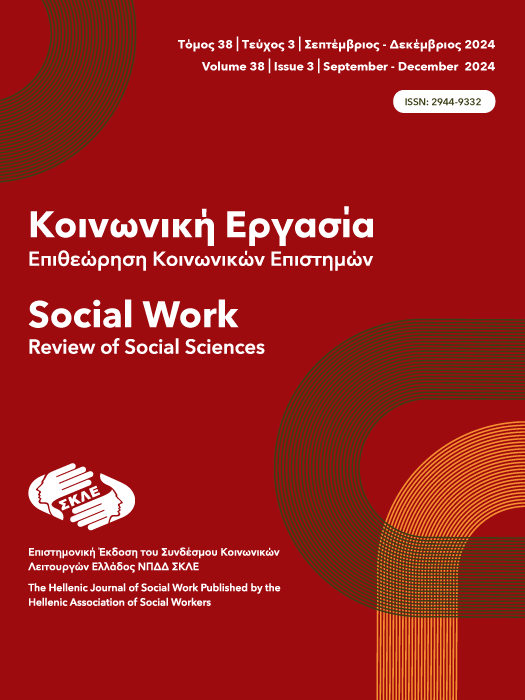Εμπειρίες ΛΟΑΤΚΙ+ γονέων στην Ελλάδα

Περίληψη
Στις 15 Φεβρουαρίου 2024, υπερψηφίστηκε ο Ν5089/2024, νομιμοποιώντας τον γάμο για όλα τα άτομα, χωρίς διακρίσεις, και αναγνωρίζοντας την οικογενειακή σχέση των ΛΟΑΤΚΙ+ γονέων με τα παιδιά τους. Αυτός ο νόμος αναγνωρίζει τα δικαιώματα τόσο των παιδιών σε οικογένειες με ΛΟΑΤΚΙ+ γονείς όσο και των ΛΟΑΤΚΙ+ ατόμων, και σταματά τις κρατικές διακρίσεις στη βάση του σεξουαλικού προσανατολισμού ή της ταυτότητας φύλου. Το παρόν άρθρο παρουσιάζει τα αποτελέσματα ποιοτικής έρευνας με ημι-δομημένες συνεντεύξεις, η οποία πραγματοποιήθηκε με 73 ΛΟΑΤΚΙ+ γονείς στην Ελλάδα από τον Ιούνιο 2023 έως τον Ιανουάριο 2024. Η έρευνα εστίασε στις εμπειρίες των ΛΟΑΤΚΙ+ γονέων, και οι άξονες που αναδύθηκαν ήταν η υποστήριξη, η συμπερίληψη και οι προκλήσεις. Συγκεκριμένα, τα δεδομένα δείχνουν πως οι ΛΟΑΤΚΙ+ γονείς υποστηρίζονται από τις ΜΚΟ και το φιλικό τους περιβάλλον, όχι όμως και από το οικογενειακό τους περιβάλλον ή τους κρατικούς μηχανισμούς. Έπειτα, η έρευνά μας δείχνει τις γονεϊκές ανησυχίες των ΛΟΑΤΚΙ+ ατόμων σχετικά με τα σχολικά περιβάλλοντα και το βαθμό συμπεριληπτικότητας που οι οικογένειές τους βιώνουν. Τέλος, πολλές από τις προκλήσεις που οι ΛΟΑΤΚΙ+ γονείς και οι οικογένειές τους αντιμετωπίζουν πηγάζουν από την έλλειψη νομικής αναγνώρισης των οικογενειακών δεσμών με τα παιδιά τους. Αρκετές από αυτές τις προκλήσεις βρίσκουν απάντηση με τις πρόσφατες αλλαγές στον Αστικό Κώδικα, ενώ άλλες παραμένουν ανεπίλυτες. Η παρούσα έρευνα αποτελεί την πρώτη ποιοτική μελέτη εμπειριών ΛΟΑΤΚΙ+ γονέων στην Ελλάδα, με σκοπό να εισφέρει στη γνώση του επαγγέλματος της Κοινωνικής Εργασίας.
Λεπτομέρειες άρθρου
- Πώς να δημιουργήσετε Αναφορές
-
Πεντάρης Π. (2024). Εμπειρίες ΛΟΑΤΚΙ+ γονέων στην Ελλάδα. Κοινωνική Εργασία. Επιθεώρηση Κοινωνικών Επιστημών, 38(3), 11–31. https://doi.org/10.12681/socialwork-rss.37384
- Τεύχος
- Τόμ. 38 Αρ. 3 (2024): 3/2024
- Ενότητα
- Άρθρο

Αυτή η εργασία είναι αδειοδοτημένη υπό το CC Αναφορά Δημιουργού – Μη Εμπορική Χρήση – Παρόμοια Διανομή 4.0.


